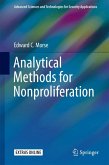National Security (5 chapters): Weapons, offense, defense, verification, nuclear proliferation
Environment (4 chapters): Air/water, nuclear, climate change, EM fields/epidemiology
Energy (7 chapters): Current energy situation, buildings, solar buildings, renewables, enhanced end-use, transport, economics
"Straightforward calculations and supporting analysis can significantly shape public policy. This insight is needed in Congress and the Executive Branch. Hafemeister, a former Congressional fellow with wide Washington experience, has written a book for physicists, chemists and engineers who want to learn science and policy on weapons, energy, and the environment. Scientists who want to make a difference will want this book."
Richard Scribner, a Founder and first Director, Congressional Science and Engineering Fellow Program, AAAS
"Hafemeister shows how much one can understand about nuclear weapons and missile issues through simple back-of-the-envelope calculations. He also provides compact explanations of the partially successful attempts that have been made over the past 60 years to control these weapons of mass destruction. Hopefully, Physics of Societal Issues will help interest a new generation of physicists in continuing this work."
Frank von Hippel, Professor, Princeton University, former Assistant Director, National Security, White House, OSTP
"Energy policy must be quantitative. People who don't calculate economic trade-offs often champion simplistic hardware. 'The solution is more .... nuclear power, or electric cars, or photovoltaics, etc.' Some simple physics will show that the true solution matches supply and demand as an 'integrated resource plan.' Physics of Societal Issues is a good place to begin this journey."
Arthur Rosenfeld, California Energy Commissioner, Professor-emeritus, University of California-Berkeley
"Political analysis of public policies that ignores technical reality is about as useful as technical analysis that ignores political reality. In this book, David Hafemeister demonstrates a solid grasp of both the technical and political realities that have shaped US arms control and defense policy for the past five decades. This is a rare treat."
Dean Wilkening, Science Director, Center for International Security and Cooperation, Stanford University
Dieser Download kann aus rechtlichen Gründen nur mit Rechnungsadresse in A, B, BG, CY, CZ, D, DK, EW, E, FIN, F, GR, HR, H, IRL, I, LT, L, LR, M, NL, PL, P, R, S, SLO, SK ausgeliefert werden.









